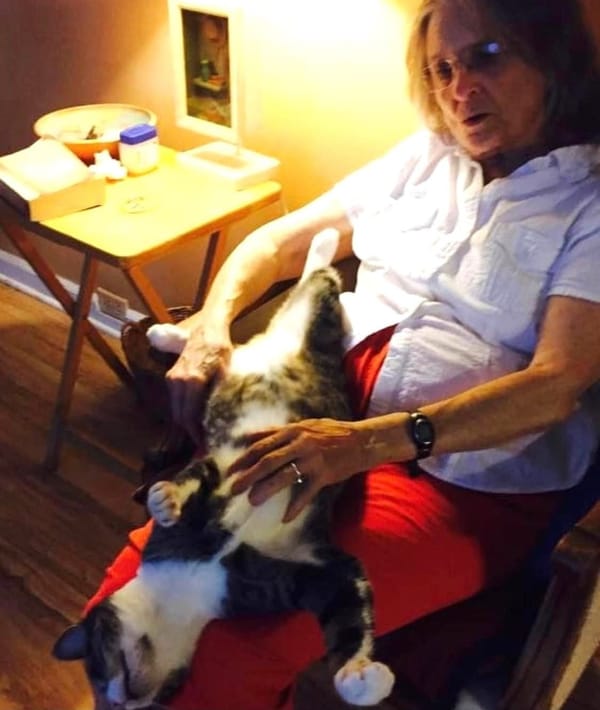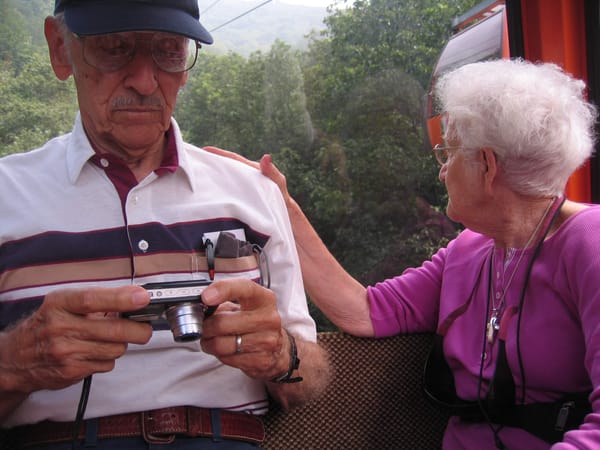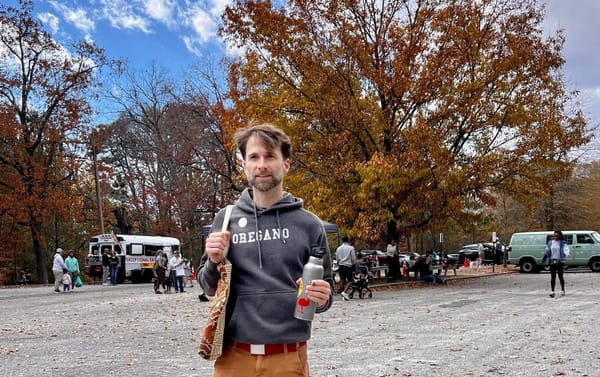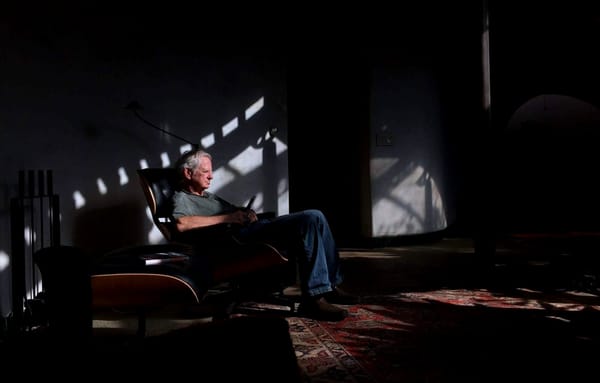Encounter with an Ancestor: Suchi
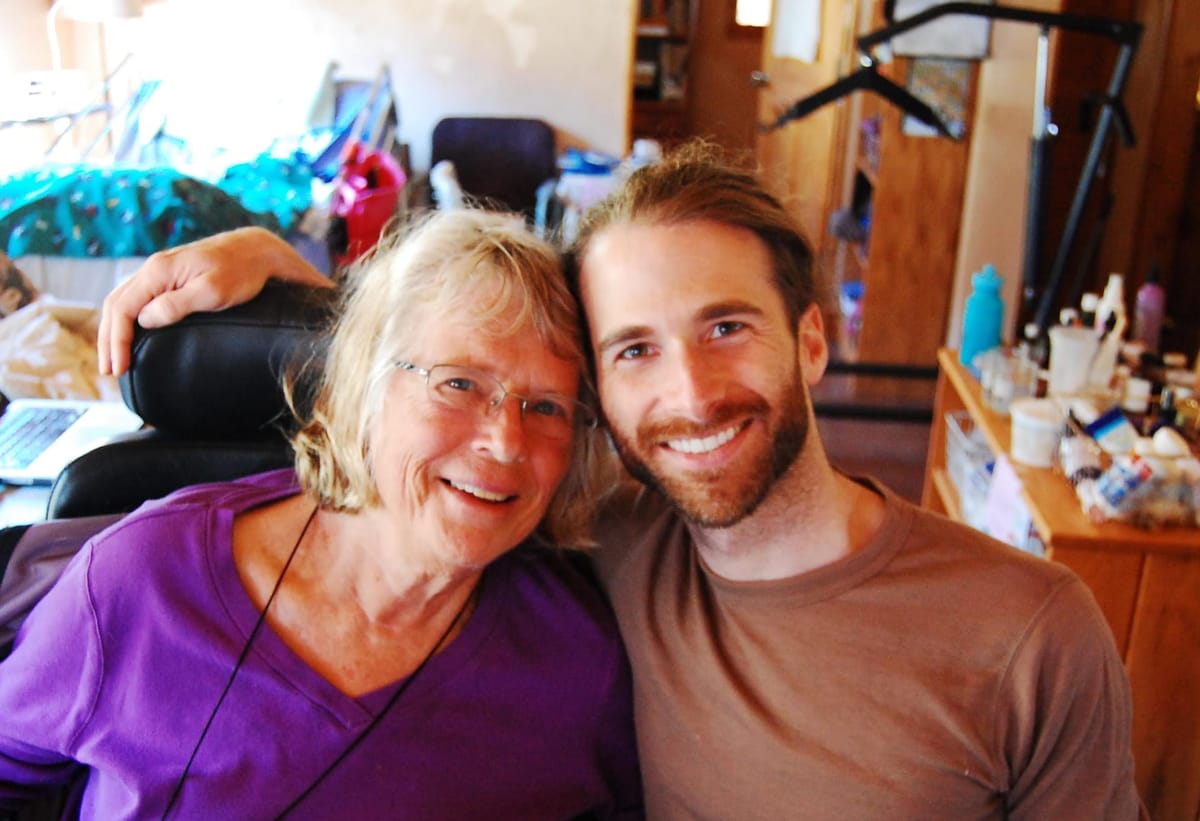
Going to Stanford in California was not an easy experience for me. Obsessed with thinking, our professors urged us toward theory, when my focus was shifting toward more and more practical matters. Learning how messed up our world was, I felt eager to step into adulthood and contribute meaningfully. When I graduated into the recession, I moved to an ecovillage in Appalachia for a while, getting my feet back on the ground. I lived in three different houses in the span of a year, then landed in a three-story house that was then called the Tribal Condo, with two best friends named Suchi and Kimchi.
They chose these names for themselves years earlier, following a trend in the village where many people were choosing new names for themselves. "Kim" loved to make Kimchi, and "chi" is a Traditional Chinese Medicine term for lifeforce or energy. Adding "chi" to her name was a playful way of reminding herself of her vital energy, which she exuded. As was the trend in their relationship, "Susan" followed suit, becoming Suchi. Their nonromantic bond was as strong as a married couple’s, even while they each lived on separate floors and had their own lovers. I lived on the middle floor, sandwiched between the two of them and directly above the kitchen. I loved when my mornings began with the buzz of Kimchi grinding her coffee beans, or the miniature symphony of Suchi putting away the dishes that had dried overnight by the sink.
Suchi and I carpooled together to Friends Meeting on Sundays, gathering as Quakers for an hour of sitting, with the silence punctuated by individuals standing and speaking, when led by Spirit to do so. Driving a half hour there and back through the mountains, the time passed easily between us, with space to process life as housemates.
As a part of her work as a pacifist, Suchi dedicated herself to the freedom and dignity of Palestinians, opening my eyes to the oppressive challenges they endured. During college, I'd seen the South African word Apartheid used to refer to the segregation and domination of Palestinians within their country, but there had been so much else pulling my attention during that time. Suchi's descriptions, drawn from things she'd seen with her own eyes, pulled the Israeli oppression of Palestinians into sharper focus, and once I saw it I could not unsee it.
Years after I’d left the village, Kimchi got cancer, and her health took a steep decline. The day after hearing the results of a devastating CT scan, Suchi also began to show symptoms of some kind of illness. She was soon diagnosed with ALS, the nervous system disease commonly known as Lou Gehrig’s disease, and the two of them moved from the Tribal Condo to another house nearby, where they could be cared for.
I was living in California, working with college students, and during spring break of 2017, I flew to North Carolina to say goodbye. Kimchi had died already, and Suchi was no longer able to move her legs. Not knowing what to expect, I prepared myself to see her only once if that’s what fit with her comfort and patterns.
On the first day, I was trained to use a hoyer lift, the hydraulic device that could transfer her from the bed to the motorized scooter she got from the ALS Foundation. I hooked the lift onto the blue mesh sling that she sat/lay on, and when it picked her up, it was like she was literally hanging in the balance. As I wheeled it from one place to the other, she swung slightly, side to side.
I'd been telling her about my charismatic friend John Perry who was, at that time, wrestling with his own mortality, and I mentioned something about his long history with acid.
"I want to do acid," she said, as I lowered her sling onto the scooter.
I had remembered something about this desire of hers, from when we'd been housemates, and I had come prepared. She reminded me of her story, how she'd lived in San Francisco during the late 60's, and every time an acid trip happened in her friend group, she stayed sober to help take care of people. She and I made a plan and held it loosely.
We spent hours together during each of my five days in the village. She showed me her system of labeling things like "Albert" the dresser for quicker reference when asking for help. She showed me how, when she needed to urinate, reclining her wheelchair would relieve some of the tension on her bladder, allowing her to hold it in longer.
During one of my days with her, she was visited by the hospice chaplain, and she welcomed me to stay in the room while they spoke. She explained to him clearly, cogently, that she did not want to wait for the disease to take its course, and she wanted to choose her own death. She implored him to introduce her to someone who might be able to help with the process.
"They say, 'Don't eat. Don't drink. Morphine,'" she told him, "but I don't want that." When he did not respond, she emphasized how she didn't want "a technician" of death, thinking a chaplain would surely understand her concern for the spiritual capacities of a person who would help her with this task.
The chaplain, a man in his 40’s who was likely trained to avoid such topics, attempted to redirect her toward exploring her feelings, fears, and concerns. Neither of them made much progress.
On my last night there, I spent the night as her caregiver, and we both stayed awake all night. It was a comedy of errors, with me scrambling to find food in the kitchen and her unable to find the right words to describe what it was she was asking for, despite her elaborate system of names for things. We laughed a lot that night, and by the time the sun came up, she wanted to tell people about the wonderful moments we'd shared, which I receive as the biggest gift.
At the time, my career as a ~storytelling specialist~ had lost the energy it generated during my twenties, and I could feel a stronger pull toward work that was directly helpful, like caregiving. Suchi gave me my first bumbling opportunity to try my hand at offering care, to witness someone stepping mindfully toward death, and I’m so grateful for that.
In the end, she opted not to take measures to end her own life, of what limited measures were available. She died about two months after my visit, with her closest friends at her bedside.
In the years that I’ve worked in eldercare, I have grown accustomed to the idea of someone’s hand being held as they die, and it’s worth remarking on the fact that Suchi insisted on not being touched as she struggled to leave her body. Some of her final words were “stop petting me.”
